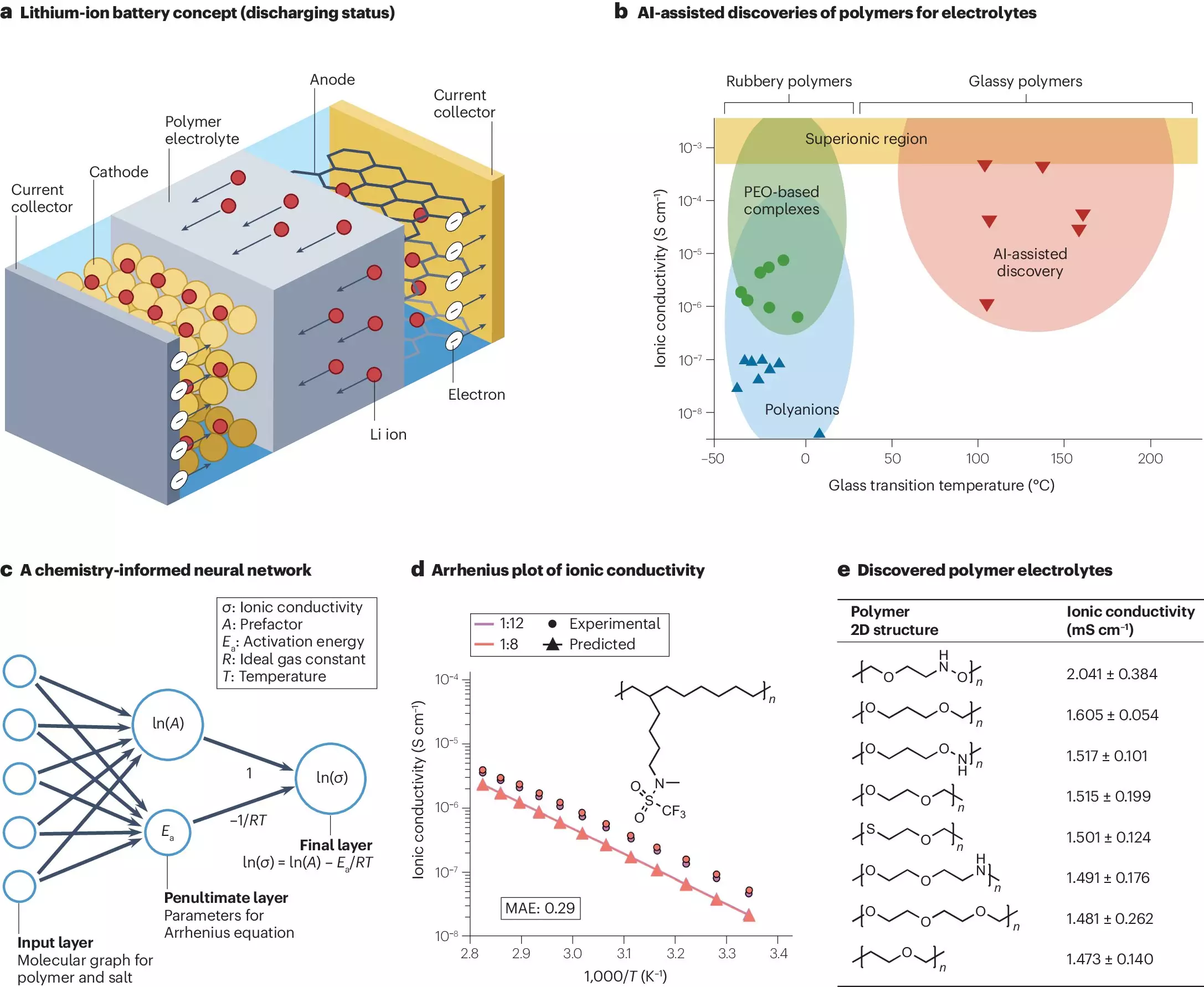The field of polymer science stands on the precipice of transformation, driven by innovations in artificial intelligence (AI). With everyday materials like nylon, Teflon, and Kevlar having significant impacts on our lives, researchers are now pursuing a future where AI enhances the discovery and development of new polymers. Georgia Tech’s Professor Rampi Ramprasad and his team have harnessed the power of AI to accelerate this process, promising to reshape the industrial landscape and resolve pressing challenges in material applications.
Over the past decade, the integration of AI in materials science has marked a significant evolution in research methodologies. Initially, efforts were primarily exploratory, supported by initiatives like the White House’s Materials Genome Initiative. This initiative set the groundwork for using computational techniques to streamline and enhance the discovery of advanced materials. Ramprasad’s group exemplifies this shift, employing sophisticated AI algorithms that not only predict polymer properties but also facilitate the design of new polymers before they are synthesized in laboratories.
Recent publications in esteemed journals, such as Nature Reviews Materials and Nature Communications, have underscored the pivotal advancements made by Ramprasad and his collaborators. These studies highlight breakthroughs in polymer development tailored to various critical applications, including energy storage and filtration technologies. Ramprasad emphasizes the shift from curiosity-driven research to tangible successes that can directly impact industrial practices.
How AI Is Transforming Polymer Design
The AI-driven approach initiated by Ramprasad’s team encompasses several crucial stages. The process begins with selecting application-specific properties that the researchers aim to optimize in new polymers. Additionally, machine learning models are trained using extensive datasets of existing material properties, enabling predictions for performance criteria. This iterative process allows for the refining of predictive algorithms, ensuring that the materials designed meet the specific needs of industry partners before moving into the synthesis phase.
One of the team’s notable achievements outlined in the Nature Communications paper illustrates the design of novel polymers tailored for capacitors used in energy storage. These capacitors play a vital role in electric and hybrid vehicles, where efficient energy density and thermal stability are paramount. Traditional polymers struggled to achieve both, but AI’s involvement allowed researchers to identify materials, like polynorbornene and polyimide, that satisfied competing requirements simultaneously.
Despite its promises, the journey toward successful AI integration in polymer science is not without obstacles. One of the primary challenges is the dependency on high-quality, diverse datasets. Accurate AI predictions necessitate comprehensive initial data, and gathering this information can be a complex task. Furthermore, after AI models propose new materials, researchers must navigate the complexities of synthesizing these polymers in the lab and validating their performance. This critical step tests both the real-world functionality and scalability of the newly designed materials.
Ramprasad’s collaboration with multidisciplinary teams is essential for overcoming these challenges. With partners like Professor Ryan Lively and various institutions engaged in fabrication and testing processes, Ramprasad’s efforts to develop AI-driven materials are supported by practical, hands-on expertise. Lively’s enthusiasm for the AI models developed by Ramprasad illustrates a growing consensus within the scientific community that machine learning can streamline research and enhance outcomes.
The intersection of academia and industry is central to the success of AI-driven polymer research. Contributions from notable companies, such as Toyota and General Electric, have been integral to the findings presented in Ramprasad’s publications. These collaborations underscore the recognition of AI’s potential in materials development and the urgency for industries to adopt these technological advancements.
To further bridge the gap between research and practical application, Ramprasad co-founded Matmerize Inc., a software startup focused on polymer informatics. By providing cloud-based solutions, Matmerize aims to facilitate virtual material design across sectors, promoting efficiency and cost-effectiveness in the process. This initiative exemplifies the commitment to translating revolutionary research into commercially viable applications, ultimately enhancing the sustainability and innovation of various industries.
The advancements in polymer research driven by AI at Georgia Tech represent a significant leap forward in materials science. As Rampi Ramprasad and his team continue to push the boundaries of polymer discovery, the synergy of AI and materials engineering becomes increasingly clear. With ongoing support from the scientific community and industry partners, the potential for revolutionary applications, from energy-efficient materials to environmentally friendly products, is vast. The journey of integrating AI in polymer science exemplifies not only the innovations within the lab but also the promise of a future where intelligent design paves the way for more sustainable and advanced materials.

